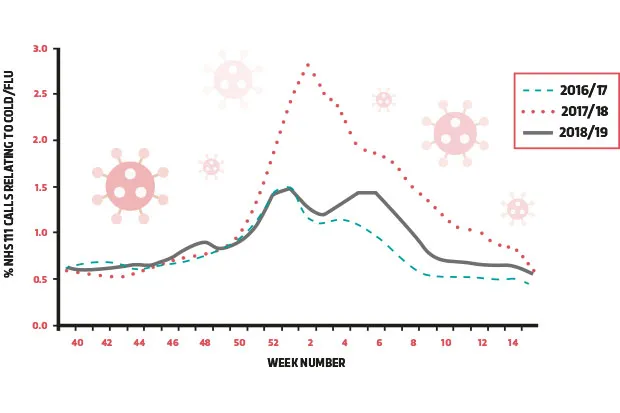Asked by: Andrew Cirel, via email
Strictly speaking, viruses can’t ‘die off’ as they’re just inanimate strips of genetic material plus other molecules. But the reason that they keep coming back is because they’re always infecting someone somewhere; it’s just that at certain times of the year, they’re less able to infect enough people to trigger a full-blown epidemic.
Many viruses flare up during the winter because people spend more time indoors in poorly-ventilated spaces, breathing in virus-laden air and touching contaminated surfaces. The shorter days also lead to lower levels of vitamin D, and this weakens our disease-fighting immune system. Experiments also suggest that the flu virus in particular remains infectious for longer in low temperatures.

But even when conditions aren’t ideal, viruses will find enough people to infect to ensure their survival, until they can come roaring back in an epidemic.
Read more:
- How long can a virus live outside a body?
- Are there any viruses that are beneficial to the human race?
Subscribe to BBC Science Focus Magazine for fascinating new Q&As every month and follow @sciencefocusQA on Twitter for your daily dose of fun facts.